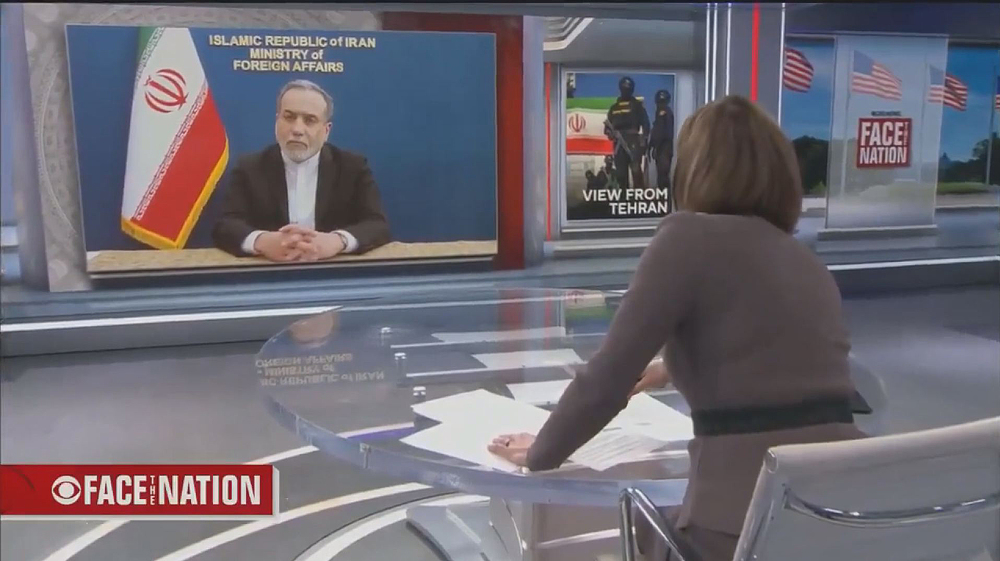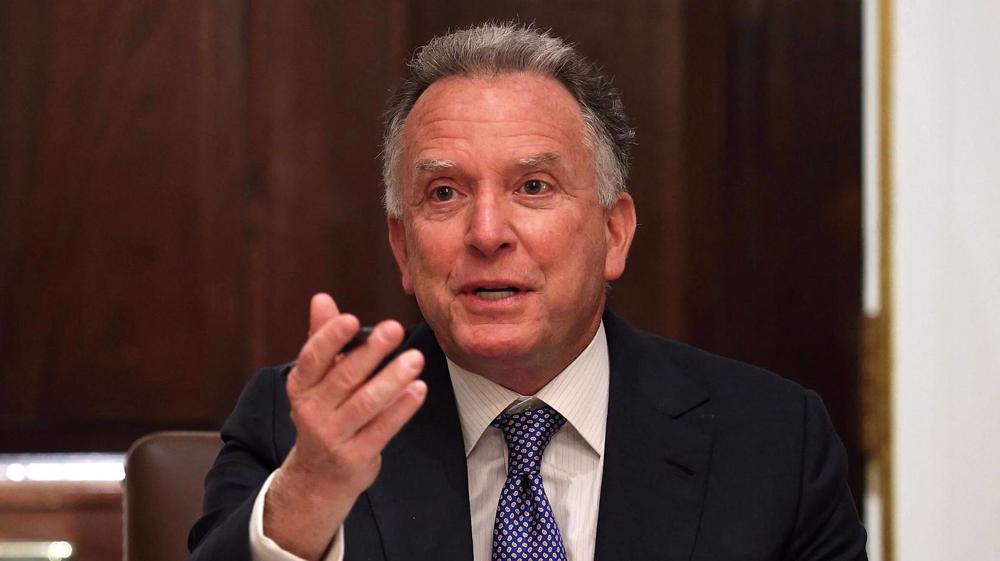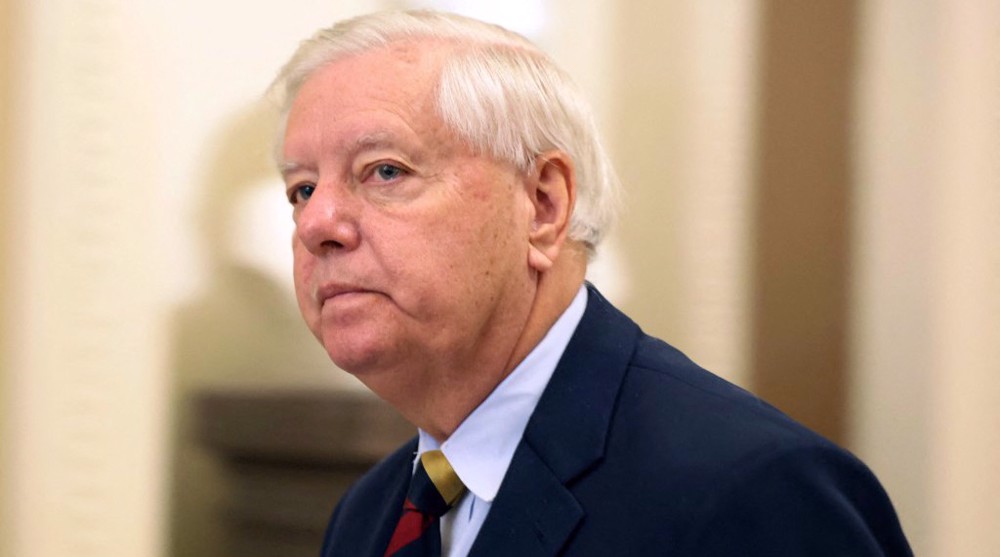Leader: Nuclear agency must get ready for enrichment up to 190,000SWU as of tomorrow
Leader of the Islamic Revolution Ayatollah Seyyed Ali Khamenei has ordered the Atomic Energy Organization of Iran (AEOI) to make preparations for enrichment of uranium up to a level of 190,000SWU without any delay.
Ayatollah Khamenei made the remarks in a ceremony held at the Imam Khomeini Mausoleum in south Tehran to commemorate the 29th anniversary of the passing away of the founder of the Islamic Republic while talking about Iran's nuclear deal with the P5+1 group of countries, which is officially known as the Joint Comprehensive Plan of Action (JCPOA).
“It seems from what they say that some European governments expect the Iranian nation to both put up with sanctions and give up its nuclear activities and continue to observe limitations [on its nuclear program]. I tell those governments that this bad dream will never come true,” the Leader said.
Stressing that the Iranian nation and government cannot tolerate to be both sanctioned and be put in the “nuclear custody,” Ayatollah Khamenei ordered the AEOI to take rapid steps to make preparations for starting uranium enrichment “up to a level of 190,000SWU for the time being within the framework of the JCPOA” and take other preliminary steps that the president has ordered from tomorrow.
US President Donald Trump announced on May 8 that Washington was walking away from the nuclear agreement, which was reached between Iran and the five permanent members of the UN Security Council - the US, Britain, France, Russia and China - plus Germany.
Trump also said he would reinstate US nuclear sanctions on Iran and impose "the highest level" of economic bans on the Islamic Republic.
Under the JCPOA, Iran undertook to put limits on its nuclear program in exchange for the removal of nuclear-related sanctions imposed against Tehran.
Elsewhere in his remarks, the Leader stated that all measures taken by enemies against the Islamic Republic were the result of their desperation and confusion in the face of the Islamic establishment.
Enemy’s measures against the Islamic Republic show how desperate they are in their face-off with Iran rather than being a sign of their power, Ayatollah Khamenei said.
The Leader added that the measures taken by enemies of the Iranian nation may slow down the forward march of the nation, but cannot stop its progress.

Imam never felt weak, nor showed weakness in the face of enemies, but always stood against them with power, the Leader said adding that when dealing with enemies’ plots, Imam Khomeini never gave in to pure sentiments, but made his moves through well-calculated plans.
Ayatollah Khamenei further noted that in dealing with enemies, the Islamic Republic of Iran gives priority to domestic potentialities and capabilities of the nation and has absolutely no trust in the enemy.
"We are well aware of the enemy's plot and disclose it to people," the Leader said, mentioning economic, psychological and practical pressures as three major components of enemy's plot against the Iranian nation.
The main goal they seek through economic pressure and sanctions is not just to mount pressure on the Iranian government, but is to make the Iranian nation disillusioned with the Islamic establishment, the Leader said, adding that with God's assistance and through efforts made by officials and people, the enemy will never achieve this goal.
Ayatollah Khamenei stated that one of the psychological measures taken by enemies against the Iranian nation is to turn its strengths into challenges in order to strip the nation of those strengths.
The Leader added that when Iran needed enriched uranium for medical purposes, enemies put all kinds of obstacles in the way of the nation to prevent it from achieving nuclear technology. However, the Leader said, Iranian youths managed to master this technology despite enemies’ efforts.

Referring to Iran's support for oppressed people of the world, especially the people of Palestine, Ayatollah Khamenei stressed that supporting the oppressed is a source of credit for Iran in the world and the country will continue to back oppressed nations and resistance forces in region and support integrity of regional countries.
As for enemies’ practical pressures on Iran, the Leader added that the main step taken by enemies in this regard is to stoke unrest by exploiting peaceful protests and gatherings that people may hold to give voice to their demands, stressing that Iranian people must remain vigilant in the face of enemies.
This year’s ceremonies coincide with the holy month of Ramadan with hundreds of thousands of fasting Iranian Muslims descending on Imam Khomeini’s mausoleum south of the capital city Tehran.
More than 300 foreign correspondents will be covering the event. Iran’s biggest airport, which is named after Imam Khomeini, will shut down for four hours from 16:00-20:00 hours local time while the ceremony is going on.
Hundreds of foreign guests, including scholars and researchers, are also attending the ceremonies.
Similar mourning processions are being held elsewhere across Iran, with the participants renewing their allegiance to the ideals of the Islamic Revolution.
Born in 1902, Seyyed Rouhollah Mousavi Khomeini grew to become the iconic leader of the Iranian nation’s struggle in the 1970s against the centuries-old monarchical tyranny.
Imam Khomeini spearheaded a popular protest against the policies of the tyrannical Pahlavi regime, which was a key ally of the US. He was arrested and imprisoned in 1963 at a time of mounting protests. Upon release, he made a historic speech in the holy city of Qom, where he lambasted the "capitulation law" granting immunity to Americans on the Iranian soil.
In the pre-Revolution era, Imam Khomeini spent more than 15 years in exile for his stiff opposition to the last monarch, Mohammad Reza Pahlavi, who the Imam believed was a lackey of the Western imperialist powers.
While in exile, Imam Khomeini continued to guide the uprising against the Pahlavi regime, which culminated in the victory of the Islamic Revolution on February 11, 1979.
In the April of the same year, Iranians took part in a national referendum for the country to become an Islamic Republic.
Imam Khomeini passed away on June 3, 1989 at the age of 87.
Hamas condemns Netanyahu’s proposal for new regional alliance
Huckabee mocks Arab League's condemnation of his biblical territorial remarks
VIDEO | Trump tariff setback
VIDEO | Press TV's news headlines
VIDEO | Iran will not 'capitulate' since it has military surprises for US
China overtakes US as Germany’s top trading partner
VIDEO | Displaced Gazans struggle to find clean water amid Ramadan
VIDEO | Pakistan strikes militant camps along Afghan border after suicide bombings










 This makes it easy to access the Press TV website
This makes it easy to access the Press TV website